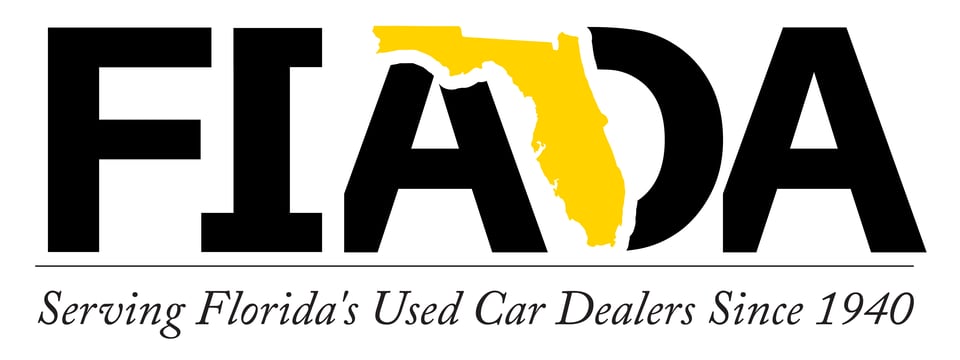Ever wondered what really sets a deed of trust apart from a mortgage? You're not alone. This pivotal question is more than just legal jargon; it's about understanding the core of home financing. Both serve as security for loans, but their operational frameworks differ significantly across various states. While a mortgage involves two parties, the deed of trust introduces a third, playing a crucial role in how property transactions are handled. Dive into the nuances that distinguish these two, ensuring you're well-equipped to navigate the complexities of securing your dream home.
Mortgages and deeds of trust serve as security instruments in real estate financing. They outline the lender's rights to the property if the borrower defaults on their loan. A mortgage involves two parties: the borrower and the lender. The deed of trust adds a third party, known as the trustee, who holds the title until the loan is paid in full.
Mortgages are governed by state law, with judicial foreclosure processes requiring court involvement. Deeds of trust allow for non-judicial foreclosures, making it quicker for lenders to reclaim properties.
Mortgages are common in most states. However, deeds of trust are prevalent in about twenty states, including California and Texas. This geographical distribution reflects differing state laws and practices in real estate financing.
States that use deeds of trust often favor them for their efficiency in foreclosure proceedings. Mortgages, while more widespread, can lead to longer and more costly foreclosure processes due to the requirement of court intervention.
In a mortgage, the borrower and the bank play crucial roles. The borrower, also known as the mortgagor, receives funds to purchase a home. In return, they give the bank a lien on the property as collateral.
If the borrower defaults, the bank can foreclose on the home to recover its loan. This process involves legal action to remove the owner's right to the property.
A deed of trust involves three parties: the trustor, beneficiary, and trustee. The trustor is similar to a borrower in a mortgage. They give a deed of trust to a third party, called the trustee.
The lender or beneficiary provides the loan under this arrangement. If the borrower defaults, the trustee can sell the property without court involvement. This makes foreclosure faster in states that use deeds of trust.
Each party's role brings specific legal implications in property loans. In mortgages, banks must navigate judicial processes to foreclose on homes. This protects borrowers but can prolong the recovery of funds.
In contrast, a deed of trust allows lenders more swift recourse if borrowers fail to meet their obligations. The trustee acts impartially to ensure both parties' interests are considered during foreclosure.
Signing a promissory note is a critical step in both mortgages and deeds of trust. It legally binds the borrower to repay the loan amount to the lender. This document is where security interest begins.
The note details the loan's terms, including repayment schedule and interest rate. It signifies the borrower's promise to pay back what they owe. Without this, lenders have no claim on the property as collateral.
In a mortgage, the security interest is direct between borrower and lender. The homebuyer agrees to give the lender a lien on their property. This lien gives lenders rights to take action if payments stop.
Mortgages involve two main documents: the mortgage itself and the promissory note. The property acts as collateral from the moment these documents are signed. If borrowers default, lenders can foreclose to recover their investment.
A deed of trust adds a third party into the equation: a trustee. They hold the actual title to the property until the loan is paid off.
This arrangement grants lenders power through a non-judicial foreclosure process if necessary. It often makes repossession faster and less costly than with mortgages. Yet, it still secures loans with homes as collateral.
Judicial foreclosure is a court-supervised process, mandatory for mortgages. It starts when the lender files a lawsuit against the borrower for defaulting on their loan. This method is lengthy, often taking months or even years to conclude.
The court's involvement ensures fairness in the sale of the property. Borrowers receive a legal defense opportunity, potentially delaying the process further. However, this can be beneficial, giving them time to find solutions to avoid losing their home.
Deeds of trust permit nonjudicial foreclosures, bypassing court procedures. This process is faster than judicial foreclosures, usually concluding within a few months. Lenders trigger it by issuing a notice of default following the borrower's failure to meet payment obligations.
The absence of court oversight speeds up property seizure but limits borrowers' options to contest or delay proceedings. They must act quickly to negotiate with lenders or seek alternative remedies.
Judicial foreclosures offer borrowers more protection and time but can be costly and stressful for both parties due to prolonged legal battles. Lenders may face significant delays in recouping their investments, impacting their financial stability.
Nonjudicial foreclosures, while expedient for lenders, place immense pressure on borrowers. The swift timeline minimizes opportunities for borrowers to rectify defaults or challenge the foreclosure's validity.
The assignment of mortgage is a critical step in the transfer of loan documents between banks. This process legally transfers the lender's interest in the mortgage to another party. It ensures that the new lender gains all rights and obligations under the original mortgage agreement.
Banks often sell mortgages to other financial institutions. This transaction requires a formal assignment document, recorded with the county or jurisdiction where the property is located. This recording confirms the new lender's legal claim on the property.
In contrast, transferring interest in a deed of trust involves different parties: the borrower, trustee, and beneficiary. The trustee holds the actual title to the property on behalf of the beneficiary, who is usually the lender.
When a deed of trust is transferred, an assignment of deed of trust is required. This document shifts the beneficiary's interest to another party but does not change the borrower's obligations under the original loan terms. Like mortgage assignments, this must be recorded to establish legality.
Transferring loan documents has significant legal and financial implications for all parties involved. It affects rights during foreclosure, as discussed in "Foreclosure Processes Compared". For lenders, it can alter their ability to collect debt or proceed with foreclosure.
For borrowers, understanding who owns their loan is crucial for addressing issues or negotiating terms. Both processes ensure that loans can be bought and sold without affecting borrowers' responsibilities or altering original loan conditions significantly.
Upon default, the mortgage initiates a judicial foreclosure process. This involves the lender filing a lawsuit against the borrower. The court then sets a timeline for payment to avoid foreclosure. If the borrower fails to pay, the property is auctioned off.
The process is lengthy, often taking months or even years. This gives borrowers time to find solutions.
Deeds of trust contain a power of sale clause. This allows trustees to sell the property without court involvement upon default. The trustee must notify the borrower and publish sale notices.
This method is faster than judicial foreclosures. It can take only a few months from default notice to sale.
Borrowers have different options under each system when facing default. In mortgages, they can negotiate with lenders for loan modifications or repayment plans. They also have the right to contest the foreclosure in court.
With deeds of trust, borrowers can still negotiate but have less time due to the expedited process. Some states allow a redemption period after sale, offering a last chance to reclaim the property.
Mortgages offer a direct relationship between borrower and lender. This simplicity can be advantageous for those seeking a straightforward loan process. Mortgages typically allow for more lenient foreclosure timelines, giving borrowers extra time to rectify defaults.
Deeds of trust, on the other hand, involve a third party, which can expedite the foreclosure process if necessary. This can be beneficial for lenders but also offers borrowers the chance to resolve issues without court involvement.
The main drawback of mortgages lies in their lengthy and complex foreclosure process. It requires judicial review, leading to increased time and money spent on resolving defaults.
Deeds of trust may lead to quicker foreclosures, potentially leaving borrowers with less time to catch up on payments or negotiate terms.
Choosing the right financing option depends heavily on state laws and personal financial situations. States that permit deeds of trust often see lenders preferring them for their efficiency in the foreclosure process.
Borrowers should consider their ability to make timely payments and their comfort level with the potential speed of foreclosure associated with deeds of trust. Consulting with a financial advisor or real estate lawyer can provide clarity and direction based on individual circumstances.
Reviewing your loan documents is the first step to identify if you have a mortgage or a deed of trust. These documents were given to you at closing. They contain crucial information about your home loan.
Look for the title of the document. It will clearly state whether it's a mortgage or a deed of trust. This distinction is vital for understanding your rights and obligations as a borrower.
If you cannot locate your loan documents, check public records. County offices hold these records and they are accessible to the public. They can provide a copy of your home loan agreement.
This method ensures accuracy in identifying your loan type. It also offers insight into any liens against your property.
Consulting with a real estate attorney can offer clarity. They specialize in property law and can easily distinguish between the two loan types.
They can also advise on the implications of each loan type for refinancing options. Their expertise ensures you make informed decisions about managing your home loan.
Navigating the differences between a deed of trust and a mortgage ensures you're armed with the knowledge to make informed decisions about your property financing. Each has its unique processes, from the parties involved to foreclosure proceedings and transferring documents. Understanding these distinctions helps you grasp the security interest creation and default consequences, guiding you toward choosing the right financing option that aligns with your needs. Identifying whether your loan is a mortgage or deed of trust sets the foundation for managing your property's financial future effectively.
Take action by reviewing your current loan documents or consulting with a financial advisor to clarify your loan type. This step is crucial for leveraging the benefits specific to your situation, ensuring you navigate the complexities of property loans with confidence. Knowledge is power—equip yourself to make strategic decisions that safeguard your property investment.


